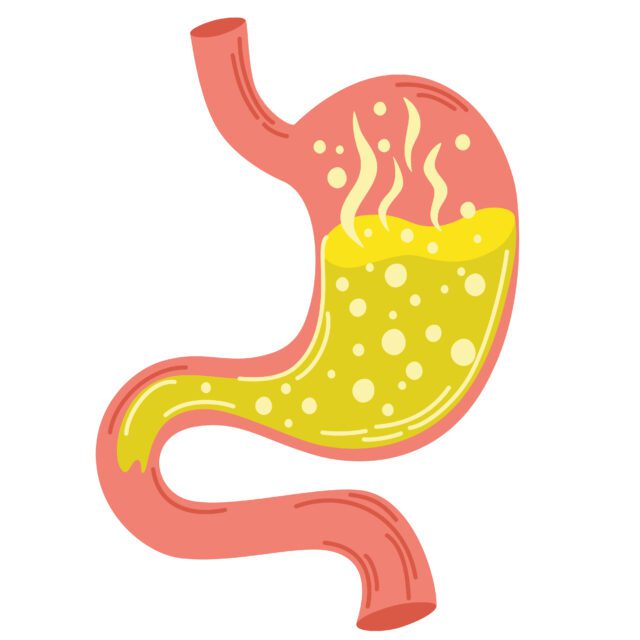It’s hard to see your friends and family enjoying all your favorite foods when your body denies you the same pleasure. The culprit? Acid reflux. As much as you’d like, you can’t indulge in the second (or sometimes even first) bowl of chili, or have those hot peppers anymore because of it. You may take medication to deal with your acid reflux, but have you ever thought at what cost? Perhaps a pricey one . . . research indicates that certain acid reflux drugs may increase your risk of bone fracture. Keep reading for more information.
What is acid reflux?
Gastro esophageal reflux disease is commonly referred to simply as “acid reflux” or GERD. This is a condition where the stomach acid and content regurgitate back up into the esophagus causing pain or discomfort.
The primary symptom of acid reflux is heartburn, although it has nothing to do with the heart. Rather, it’s a burning feeling, rising from the stomach into the chest then into the throat. Other symptoms may include bloating, nausea, pain in the chest and upper abdomen, an acidy taste in your mouth, belching, or a burning sensation when you try to enjoy a hot drink. Although all these symptoms occur randomly, coming and going without warning, they tend to get worse after a meal.
If you suffer from acid reflux, you’re certainly not alone: about one in every five people experience symptoms. Acid reflux can happen to anyone, including pregnant women, children, infants, the elderly and is common in both men and women.
The severity varies from person to person as well as the regularity in which it occurs. For instance, if you suffer from heartburn or acid reflux once a week you have a “mild case.” If you happen to suffer from heartburn more than twice a week you may have “Chronic Acid Reflux Disease.” Chronic acid reflux can lead to serious health complications, including disintegration of the esophagus.
Which medications result in the increased risk of bone fractures?
Proton Pump Inhibitors (PPIs) are medications designed to help decrease the acid content in the stomach and intestines. Although these medications may help with stomach acid production, they may also increase the risk of bone fractures, osteoporosis-related fractures as well as pneumonia, according to research.
Specifically, the long-term use of PPIs has increased fractures of the hip, wrist and spine. Some of these PPIs include Aciphex, Prevacid, Protonix, Nexium, and Prilosec. In the studies, the connection between taking PPIs and bone fracture risk materialized after the patient had taken the medication for about seven years. However, hip fractures were 62 percent more likely to occur in those that had taken PPIs only five years.
Using PPI medication for just one year can increase the risk of possible hip fracture by 44 percent. The higher the dose of PPI medication and the longer it’s taken, the higher the risk.
What causes the increased risk?
PPI therapy is thought to decrease bone density or insoluble calcium absorption in some patients, increasing the risk of bone fractures. This is a definite concern when it comes to the elderly, as there is a 20 percent death rate over the first year following a hip fracture. Nursing home care is required for one out of every five patients that are able to endure that first year.
What can you do?
If you suffer from acid reflux and have been prescribed Proton Pump Inhibitors be sure to ask your doctor to place you on the lowest possible dose that will help you cope with the pain. It is advised to increase your calcium intake by taking a supplement or a calcium-rich source of dairy.
Or, if you’re interested in finding an alternative method to the traditional PPIs, you might want to try one of the following tactics:
Apple Cider Vinegar: take a tablespoon of apple cider vinegar before every meal, or if you can’t stomach that, eating a few apple slices can also do the trick.
Digestive Enzymes: digestive enzymes can be a great protective measure when it comes to acid reflux, as can probiotics (like those found in certain yogurts).
Papaya or Pineapple Extract Tablets: both of these fruits contain digestion-friendly enzymes. Chew on the tablets right after eating for the best effect.
There’s no denying it – the increased risk for bone fractures from certain acid reflux medications does exist. Ultimately you need to balance your need for those medications with the increased risk for fractures. So . . . try one of the alternative therapies listed above: you not only avoid the risk, but you just may be surprised by other health benefits as well!









